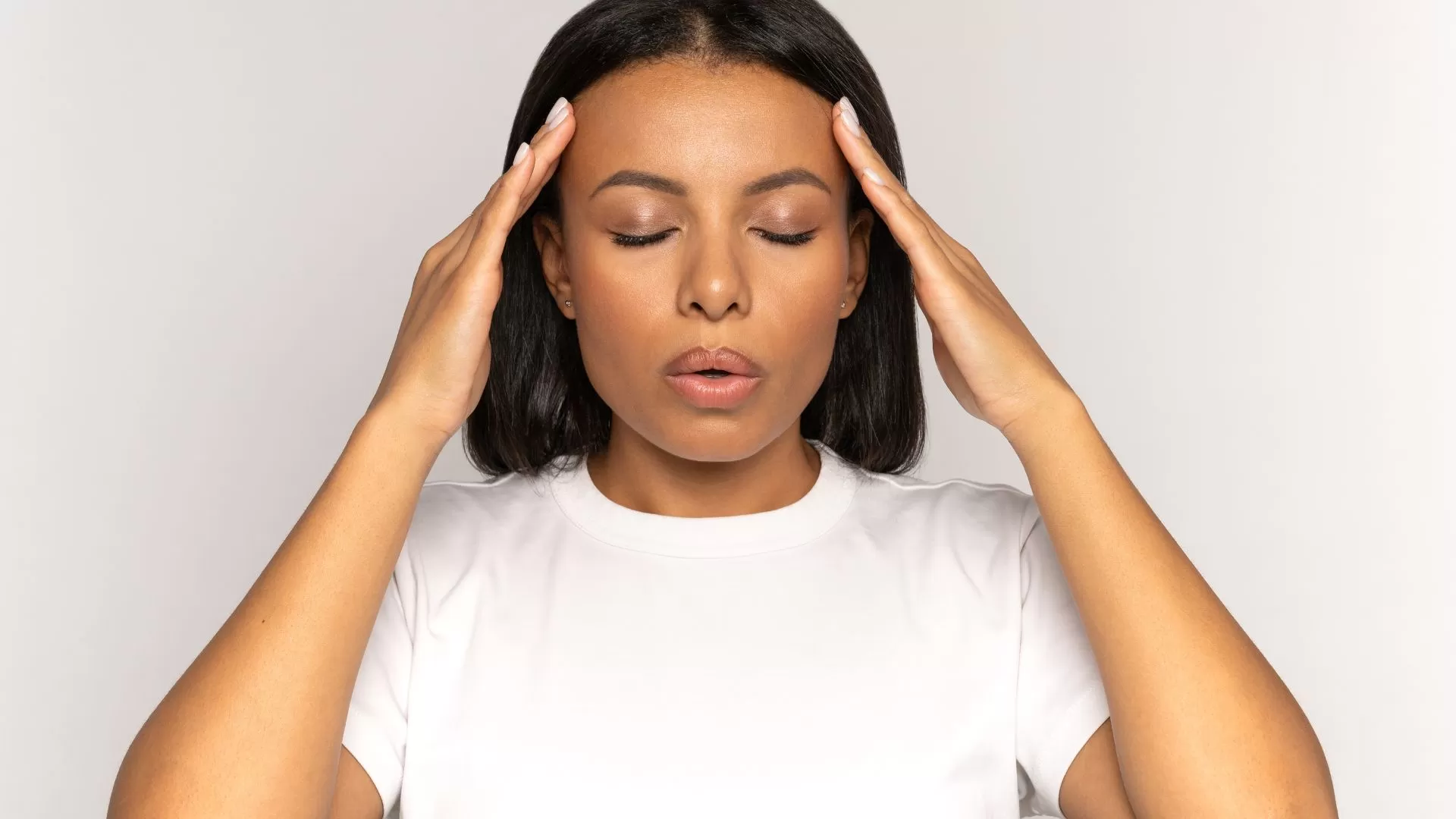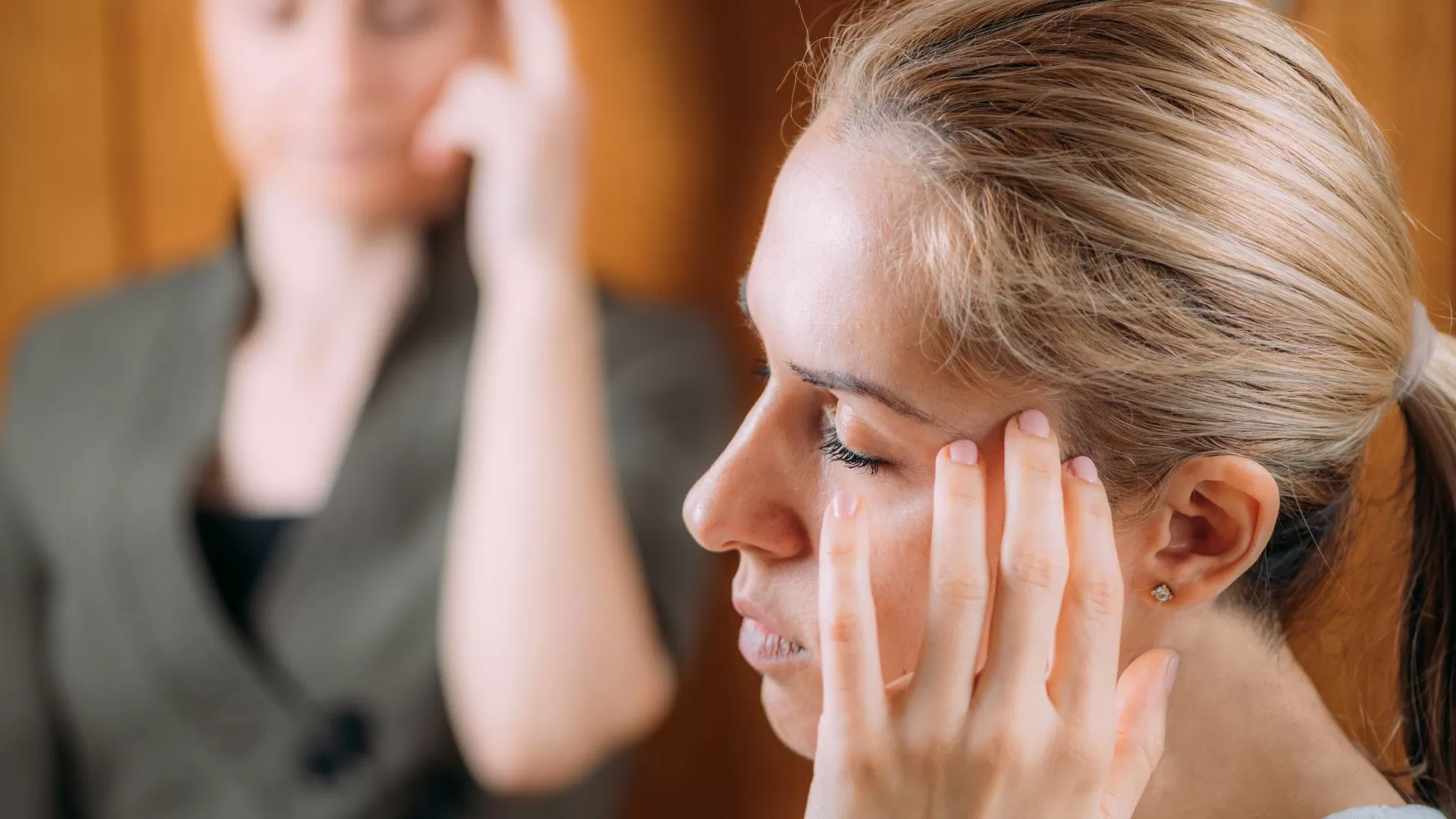Women's Mental Health Counselling Therapy for Anxiety
We recognize that women’s mental health counseling is essential for managing anxiety. It offers a safe space to explore the unique challenges many of us face, including societal pressures and the juggling of roles. Through therapies like cognitive behavioral therapy (CBT), we can learn effective coping strategies and build resilience. Support groups create a community where we can share experiences and feel understood. By focusing on each woman’s needs, therapy enables us to navigate anxiety and enhances our emotional well-being. There’s so much more that can empower us on this journey to mental wellness.

About Women's Mental Health Counselling Therapy
Women’s Mental Health Counselling therapy focuses on understanding and addressing the unique emotional and psychological challenges women face, helping us navigate anxiety with compassion and expertise. In these sessions, we explore our feelings in a safe space, fostering emotional well-being through tailored approaches that resonate with our experiences.
Women’s therapy emphasizes anxiety management by equipping us with effective coping strategies that empower us to manage stress and uncertainty. Cognitive behavioral therapy (CBT) is often a key component, guiding us to identify and challenge negative thought patterns that contribute to our anxiety. This structured approach enables us to develop healthier perspectives and responses.
Additionally, trauma-informed care guarantees that we’re supported in a manner that acknowledges past experiences while prioritizing our safety and comfort. We also have access to mental health resources that can enhance our journey toward healing. Joining women’s support groups can provide a sense of community, reminding us that we’re not alone in our struggles. In this supportive environment, we can share our stories, learn from others, and cultivate resilience together. Ultimately, women’s mental health counselling therapy is an essential step in reclaiming our peace and strengthening our emotional foundations.
Understanding Anxiety in Women's Mental Health
Anxiety often manifests differently in us, shaped by unique life experiences and societal pressures that can leave us feeling overwhelmed and isolated. In women’s mental health, anxiety disorders are particularly prevalent, often stemming from the juggling of multiple roles and expectations. We may experience various anxiety symptoms, such as excessive worry, restlessness, or difficulty concentrating, which can hinder our daily lives.
Mental health counseling can be a crucial resource for us, providing the emotional support we need to navigate these challenges. Through psychotherapy for women, we learn effective anxiety treatment strategies that incorporate stress management techniques and coping mechanisms tailored to our needs. Self-compassion plays a critical role in our journey; by being gentle with ourselves, we can better manage our anxiety.
It’s essential to recognize that seeking help isn’t a sign of weakness but rather a courageous step toward healing. By understanding how anxiety affects us, we can foster a supportive environment where we feel empowered to confront our struggles and embrace our mental health journey together. Let’s prioritize our well-being and seek the tools necessary to cultivate resilience and peace.
Comprehensive Anxiety Assessment and Personalized Diagnosis for Women
A thorough assessment tailored to our unique experiences can uncover the underlying factors contributing to our anxiety, ensuring we receive an accurate diagnosis and effective treatment. This extensive anxiety assessment is imperative in identifying our anxiety triggers and understanding how they impact our daily lives. By focusing on a personalized diagnosis for women, we can engage in women’s mental health support that truly resonates with us.
In anxiety counseling, gender-specific therapy plays an essential role in recognizing the unique challenges we face. Our experiences as women can shape our emotional responses, and understanding this can enhance our mental health care. Through these assessments, we’re equipped with valuable coping skills and relaxation techniques that foster emotional resilience.
As we navigate our mental health journey, it is important to embrace the support available to us. With the right guidance, we can develop a tailored approach that not only addresses our anxiety but also empowers us to thrive. By prioritizing our well-being, we take significant steps toward healing and growth, ultimately creating a more fulfilling life.
Cognitive Behavioral Therapy (CBT) for Anxiety Relief and Management
Understanding our unique experiences paves the way for effective Cognitive Behavioral Therapy (CBT), which can greatly aid in managing and relieving anxiety symptoms. As we engage in this therapeutic process, we learn to recognize the connection between our thoughts, feelings, and behaviors. CBT helps us develop essential skills for emotional regulation and anxiety relief.
One powerful aspect of CBT is exposure therapy, where we gradually confront our fears in a safe environment, allowing us to diminish the intensity of panic attacks and anxiety triggers. We can also incorporate self-help techniques, such as relaxation exercises and mindfulness-based therapy, which empower us to manage our anxiety daily.
Through behavioral therapy, we challenge negative thought patterns and replace them with healthier perspectives. This shift can notably enhance our mental health and overall well-being. By committing to this journey together, we can foster resilience and build coping strategies that promote lasting change. In embracing CBT, we not only work towards alleviating anxiety but also cultivate a deeper understanding of ourselves, leading us to a more fulfilling life.
Techniques for Managing Social Anxiety and Panic Attacks
Managing social anxiety and panic attacks can feel overwhelming, but we can take practical steps together to navigate these challenges and regain our confidence in social situations. One effective approach is cognitive therapy, which helps us identify and challenge negative thoughts that fuel our anxiety. Incorporating breathing exercises into our daily routine can provide immediate relief during panic attacks, allowing us to calm our minds and bodies.
Exposure-based treatment is another powerful technique. By gradually facing our fears in a controlled way, we can desensitize ourselves to anxiety-provoking situations. While some of us might consider anxiety medication for short-term relief, it is crucial to consult with a healthcare professional to explore the best options for our needs.
Alongside these techniques, we should prioritize stress reduction by engaging in activities that promote relaxation, such as yoga or meditation. Utilizing calming techniques can further enhance our coping strategies. Additionally, joining support groups can offer us a sense of community and shared understanding, reminding us that we’re not alone in this journey. Together, we can develop the resilience necessary to manage social anxiety and enjoy fulfilling social connections.

Emotional Regulation and Building Resilience Against Anxiety
Building emotional regulation skills is essential for us to navigate anxiety and cultivate resilience in our daily lives. By developing these skills, we can better manage our emotional health and address the challenges posed by anxiety disorders. Emotional regulation allows us to respond to stressors with a sense of control instead of feeling overwhelmed.
Through psychotherapy and women’s counseling services, we can learn techniques that promote personal growth and mental wellness. These strategies not only help us identify our triggers but also enable us to create a toolkit for stress relief. By practicing mindfulness, we can become more aware of our emotions and reactions, fostering a healthier relationship with ourselves.
As we strengthen our emotional regulation capabilities, we build resilience against anxiety. This resilience empowers us to face life’s challenges with confidence and adaptability. It’s important to remember that emotional regulation is a journey, and seeking support along the way is a sign of strength. Together, we can embrace our experiences, learn from them, and emerge stronger, more equipped to handle future anxiety. Let’s take these steps toward emotional wellness and resilience, knowing we’re not alone in this process.
Mindfulness and Meditation Techniques for Stress Reduction
Incorporating mindfulness and meditation techniques into our daily routines can greatly alleviate stress and enhance our overall mental well-being. As we navigate the complexities of life changes, stress can often escalate, particularly for women facing anxiety disorders. Practicing mindfulness meditation allows us to cultivate self-awareness, helping us recognize our thoughts and feelings without judgment. This awareness is essential for emotional recovery and can greatly improve our women’s emotional health.
Engaging in regular mindfulness practices not only supports stress reduction but also serves as a powerful tool for anxiety treatment. It encourages us to be present, reducing the overwhelming feelings that often accompany anxiety. By embracing holistic therapy approaches, we can advocate for our mental health and build resilience against future challenges.
As we support one another in our journeys, let’s remember that mindfulness is a skill we can develop together. Whether through guided meditation, breathing exercises, or simply taking a moment to pause, we can foster a sense of calm and clarity. Together, we can create a supportive environment that prioritizes our mental health and empowers us to thrive.

Addressing Anxiety Related to Perinatal and Maternal Mental Health
Anxiety during the perinatal and maternal phases is a common experience for many women, and recognizing its impact is essential for our emotional well-being and overall health. Perinatal mental health issues, including anxiety disorders and generalized anxiety, can arise from the changes and challenges we face during pregnancy and postpartum. By addressing these concerns, we can empower ourselves and foster psychological well-being.
Counseling for women plays a vital role in supporting emotional trauma recovery. It provides a safe space for us to process our feelings and experiences, enabling us to understand the roots of our anxiety. Through professional help, we can explore coping strategies tailored to our needs, focusing on self-care practices that promote healing and resilience.
Moreover, discussing our experiences with other women can create a sense of community and support, reminding us that we’re not alone in our struggles. By prioritizing our mental health, we not only enhance our own lives but also set a positive example for those around us. Together, we can navigate the complexities of maternal mental health, fostering a culture of understanding, support, and women’s empowerment.
Self-Esteem and Identity Issues in Women's Anxiety Treatment
Steering through self-esteem and identity issues is vital for us as we seek effective treatment for anxiety, as these factors greatly impact our overall mental health and well-being. Many of us grapple with anxiety disorders, including generalized anxiety disorder, which can be exacerbated by low self-esteem and unresolved identity issues. It’s important to remember that these struggles are common among women, often linked to various women’s issues.
Through trauma therapy, we can explore the roots of our self-esteem challenges and identity concerns. By addressing these underlying factors, we can work towards empowerment, ultimately leading to mood stabilization and improved mental health. As we process relationship issues that may have contributed to our anxiety, we can better understand our worth and identity.
Engaging in depression counseling can also provide us with tools and strategies to enhance our self-esteem and navigate our identities more confidently. By acknowledging and working through these challenges, we can foster a supportive environment for ourselves and other women. Together, we can commence on this journey towards greater self-acceptance and resilience, ensuring that our anxiety treatment is holistic and effective.
Holistic and Lifestyle Approaches to Anxiety Recovery
As we work on building our self-esteem and understanding our identities, exploring holistic and lifestyle approaches can greatly enhance our journey to recovery from anxiety. Integrating lifestyle changes like regular exercise, balanced nutrition, and mindfulness practices can substantially improve our mental health, helping us manage symptoms of anxiety disorders and mood disorders.
Engaging in holistic wellness activities, such as yoga or meditation, allows us to reconnect with our bodies and improve our body image, fostering a sense of empowerment. Additionally, establishing a healthy work-life balance can reduce stress and create space for self-care, which is essential in our recovery process.
Participating in trauma recovery programs and grief counseling can also provide us with the tools to process our emotions, enabling us to navigate through the complexities of depression and anxiety. By focusing on women’s empowerment, we cultivate a supportive community that encourages openness and healing.
Together, we can embrace these holistic and lifestyle approaches, nurturing our mental well-being and fostering resilience against anxiety. As we support each other in this journey, we can create a brighter, healthier future for ourselves.
Relationship and Family Counseling for Anxiety Support
Steering through the complexities of our relationships can often feel overwhelming, but seeking family counseling can be an essential step in alleviating anxiety and fostering stronger connections. When we experience anxiety disorders or panic disorders, the impact can ripple through our families, often exacerbating feelings of excessive worry and stress. In these moments, relationship counseling becomes a powerful tool for healing.
Family counseling not only addresses the dynamics that contribute to our anxiety but also promotes trauma healing and strengthens our bonds. We can empower each other by openly discussing issues like postpartum depression, which many women face, and how it affects our families. Through this supportive environment, we gain insights that enhance our maternal health and well-being.
Addressing Co-Occurring Conditions: Depression, PTSD, and OCD
Steering through the challenges of co-occurring conditions like depression, PTSD, and OCD can feel isolating, but recognizing their interconnectedness is vital for fostering our overall mental health. These conditions often overlap, with anxiety disorders fueling fear and intrusive thoughts that can exacerbate symptoms of depression and PTSD.
When we experience trauma, it can lead to a cycle of rumination and heightened anxiety, making effective depression treatment essential. Addressing our mental wellness means understanding how obsessive-compulsive disorder can manifest in our daily lives, potentially complicating generalized anxiety treatment.
By acknowledging these co-occurring conditions, we can better tailor our therapeutic approaches. For instance, integrating trauma-informed care can help us explore the root causes of our anxiety while addressing PTSD symptoms. This holistic view allows us to create a supportive environment where we feel understood and validated.
It’s important to remember that we’re not alone in this journey. Seeking professional help can provide us with the tools and strategies necessary to tackle these intertwined issues, paving the way for a healthier, more balanced life. Together, we can embrace healing and reclaim our wellness.
Practical Coping Strategies and Anxiety Relief Techniques
Recognizing the interplay between anxiety and co-occurring conditions can guide us toward effective coping strategies and relief techniques that empower us on our mental health journey. For those of us experiencing anxiety disorders, it’s vital to develop tools that can manage panic responses and intrusive worry. Practicing mindfulness and grounding techniques can help us stay present, reducing the grip of generalized worry and avoidance behavior.
Engaging in regular physical activity is another essential strategy. It not only aids in hormonal balance but also fosters our self-worth and combats burnout. If social phobia makes outings challenging, starting small—like a brief walk in a familiar area—can be a gentle way to build confidence.
Additionally, cognitive-behavioral techniques can be invaluable. By reframing our thoughts, we can challenge negative beliefs that fuel anxiety. Journaling can also help us articulate feelings, making the process less overwhelming.
Ultimately, these coping strategies are not one-size-fits-all, but by exploring different techniques, we can find what resonates most with us, paving the way toward a more balanced and fulfilling life.
Women's Support Groups for Anxiety: Fostering Connection and Belonging
When we come together in women’s support groups, we create a safe space where we can share our experiences with anxiety, fostering connection and a sense of belonging that is essential for our mental well-being. These groups empower us, allowing us to confront our anxiety disorders and the worries that often accompany them. By sharing our stories, we recognize that we’re not alone in our struggles with anxiety attacks and maneuvering social situations.
In these supportive environments, we can explore gender-focused therapy that acknowledges the unique challenges we face as women. Discussing issues like post-traumatic stress in a group setting helps us process our experiences and learn from each other. We find strength in our shared vulnerabilities, and through connection, we cultivate resilience.
Support groups remind us that seeking help is a sign of strength, not weakness. Together, we can develop coping strategies and provide reassurance that healing is possible. As we support one another, we foster a collective sense of empowerment, proving that together, we can face our worries and thrive in the face of anxiety.
Medication Management and Therapy for Severe Anxiety Symptoms
Many of us find that managing severe anxiety symptoms often requires a combination of medication and therapy to truly feel balanced and supported. For those of us living with an anxiety disorder, understanding medication management is essential. Antidepressants can play a significant role by helping to regulate serotonin and dopamine levels in our brains, which can alleviate feelings of nervousness and restlessness.
In conjunction with medication, therapy offers a safe space to explore our thoughts and feelings. It helps us develop coping strategies for sleep disturbances and heart palpitations that often accompany severe anxiety. By working with a mental health professional, we can better understand our triggers and learn how to navigate them effectively.
It’s important to remember that we’re not alone in this journey. Many women experience similar struggles, and finding the right balance of medication and therapy can lead to significant improvements in our overall well-being. By prioritizing both medication management and therapeutic support, we can take proactive steps toward managing our anxiety and reclaiming our lives. Together, we can build resilience and foster a sense of peace.
Contact Us for Expert Women's Anxiety Counseling and Mental Health Support
Finding the right support is essential for our journey toward managing anxiety, and reaching out for expert women’s anxiety counseling can make a significant difference in our lives. We recognize that dealing with anxiety, whether it stems from fear of social situations or reproductive mental health issues, can feel overwhelming. That’s why seeking specialized mental health support is vital for our overall well-being.
Our team offers gender-focused therapy that emphasizes women’s mental health, integrating techniques like cognitive behavioral therapy and anger management. We believe in women’s empowerment through therapy, helping us develop coping strategies and resilience. Whether we need assistance with anxiety counseling, marriage counseling, or other challenges, we’re committed to providing a safe and understanding environment. Contact us today!

Frequently Asked Questions
What Qualifications Should I Look for in a Women's Mental Health Counselor?
When we’re seeking a counselor, it’s essential to look for relevant qualifications. We should prioritize those with degrees in psychology or social work, along with specialized training in mental health. It’s also beneficial if they’ve got experience in our specific concerns. We can check for licenses and certifications, as well as their approach to therapy. Ultimately, we want someone who understands our needs and creates a safe, supportive environment for us.
How Can I Tell if I Need Therapy for My Anxiety?
When we’re feeling overwhelmed by persistent worry, restlessness, or physical symptoms like a racing heart, it might be a sign we need therapy. If our daily life feels impacted—like trouble concentrating or sleeping—it’s important to pay attention. We shouldn’t ignore those feelings; reaching out for support can help us understand and manage our anxiety. Remember, seeking help is a brave step toward feeling better and reclaiming our peace of mind.
Are There Any Risks Associated With Anxiety Medications?
When it comes to anxiety medications, we should definitely be aware of potential risks. Some common side effects might include drowsiness, weight gain, or digestive issues. There’s also a chance of dependency or withdrawal symptoms if we stop taking them suddenly. It’s important for us to have open conversations with our healthcare providers about any concerns, ensuring we feel supported and informed throughout our treatment journey. We’re not alone in managing these challenges together.
How Long Does Therapy for Anxiety Typically Last?
When we think about therapy for anxiety, its duration can vary widely. Typically, we might engage in sessions for a few weeks to several months, depending on our individual needs and progress. It’s important to remember that everyone’s journey is unique, and some of us may find relief sooner, while others may take longer. Regular check-ins with our therapist can help us gauge our progress and adjust our goals as necessary.
Can Anxiety Affect My Physical Health and Well-Being?
Absolutely, anxiety can greatly impact our physical health and well-being. When we experience anxiety, it can lead to symptoms like headaches, fatigue, and digestive issues. We might also notice our immune system feels weakened. It’s important to recognize that our mental state and physical health are deeply interconnected. By acknowledging this connection, we can take proactive steps to support both our mental and physical well-being, fostering a healthier balance in our lives.

